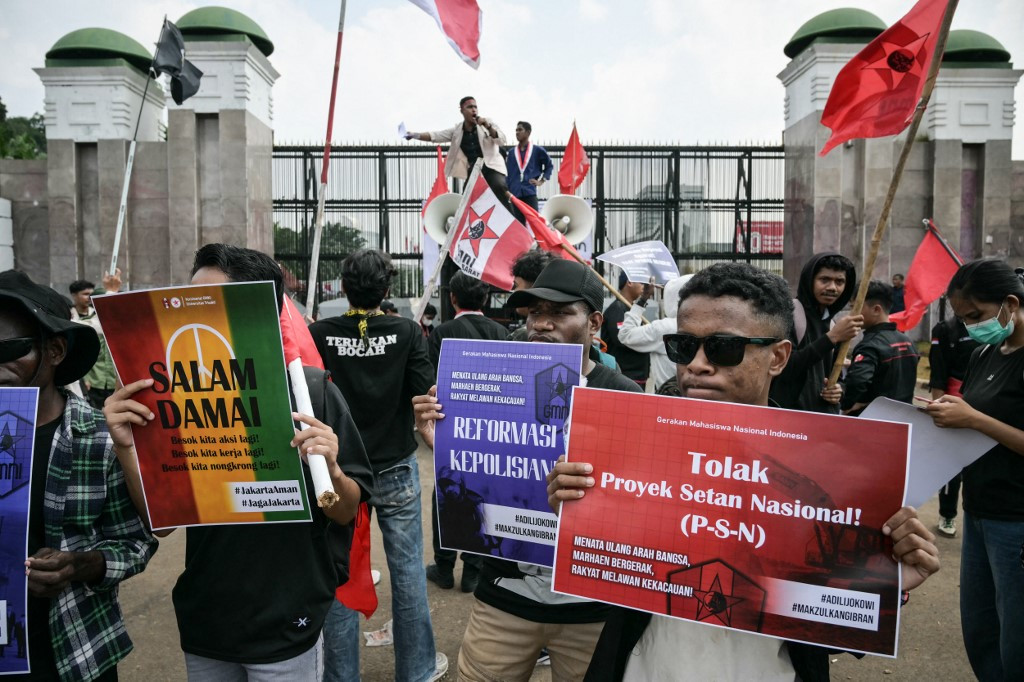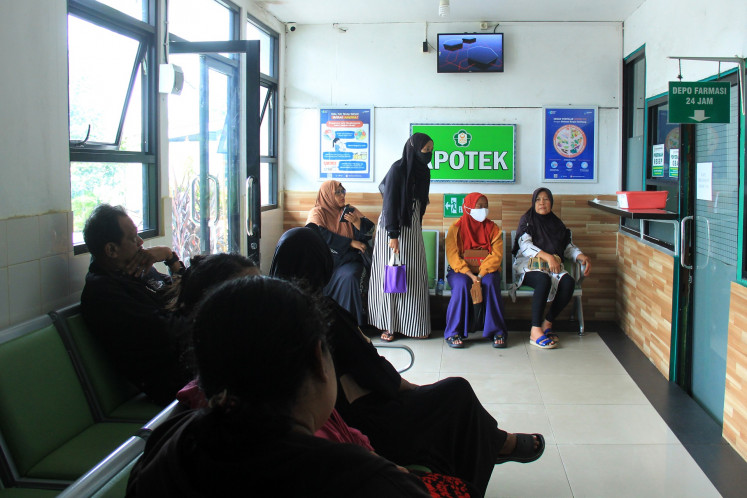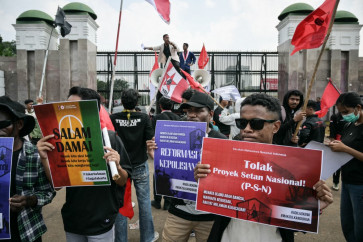Popular Reads
Top Results
Can't find what you're looking for?
View all search resultsPopular Reads
Top Results
Can't find what you're looking for?
View all search resultsRedefining government ‘harmony’: Not at the expense of people's lives
Influencers, students, and community voices collectively shape public opinion and, beyond that, provide effective and innovative policy literacy tools more effectively than the government or any lawmakers.
Change text size
Gift Premium Articles
to Anyone
W
ithin the past year, Indonesia has seen at least three waves of demonstrations, the most recent still ongoing and tragically costing lives. Far from being isolated, these events reveal a pattern of mounting grievances, deep distrust and growing cynicism toward the legislative and executive branches of power.
This is the context in which our democracy now stands. Civil society is alive, vocal and mobilized, but their supposed representatives have not always kept pace. The very institutions designed to channel dissent into constructive policymaking, the most important being the House of Representatives, have struggled to adapt to evolving expectations from the people.
President Prabowo Subianto often speaks of “harmony” in his speeches, referring to unity within the government as a guiding principle of his administration. Yet our political system faces a systemic challenge of representation. True harmony should not come at the expense of the people’s voice, and today, unfortunately, it too often does.
While people feel underrepresented, civil society has become the backbone of Indonesia’s democratic credibility. Increasingly, the role of representing the people is being filled by civil society rather than elected representatives. Citizens rarely turn to House members for a compass on pressing issues.
One thing is clear: When it comes to representing the people, it is more often not the House but key civil society figures, even outspoken influencers, who are seen as representing the voices of the public. Trust in these figures is earned through consistency, ingenuity, inclusive and transparent engagement.
Civil society has turned social media into its primary arena. Templates of educational and persuasive posts are reshared hundreds of thousands of times in a single day. “No viral, no action”, a phrase born not without reason, comes from a repeated pattern of experiences and now has become the very power of civil society.
Influencers, students and community voices collectively shape public opinion and, beyond that, provide effective and innovative policy literacy tools, often collecting aspirations and communicating more effectively than the government or any lawmakers. Despite the challenges of state-sponsored “buzzers” and disinformation, today’s civil society is more self-aware and interconnected, with key figures and entities acting as checks and balances among themselves.


















